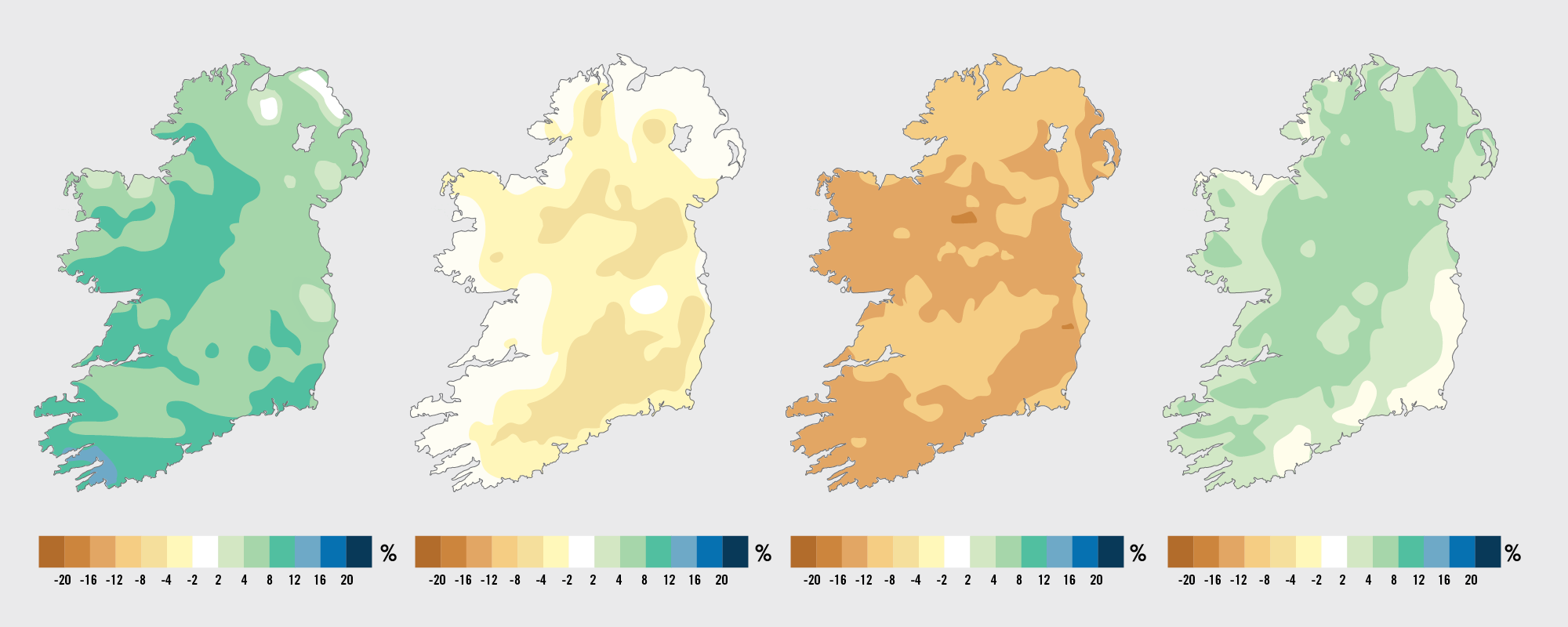What climate impacts will we experience if we don’t embrace renewables and other technologies to reduce our emissions and just leave things the way they are?
The recent floods in the Midlands provide a stark illustration of the fact that climate change may already be having a detrimental impact on this country.
Similar events will undoubtedly happen again, magnifying in the future, if we don’t take serious action to combat climate change.
According to a report commissioned by the Irish Academy of Engineers, the effects of climate change mean “the water supply in many parts of the island will come under severe pressure; our main cities and towns face significant risk of major flooding; and our energy facilities are increasingly at risk from changing weather patterns and more intense storms”. It is clear that climate change is already underway 1.
During the 20th century, the mean annual temperature in Ireland rose by 0.7°C and an increase of between 1.4 and 1.8°C is projected by 2050. Over the same timeframe, the Environmental Protection Agency (EPA) believes that several material changes will occur in the Irish climate 2. These will manifest in increasingly intense storms and rainfall events leading to river and coastal flooding (Fig. 7). Conversely, we will also experience water shortages during summer months.
